Planning worship?
Check out our sister site, ZeteoSearch.org,
for 20+ additional resources related to your search.
- |
User Links
Person Results
‹ Return to hymnal
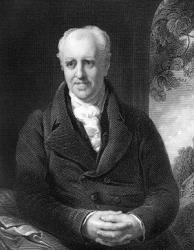
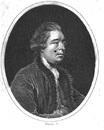
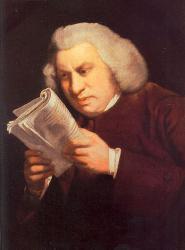
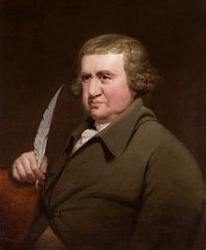
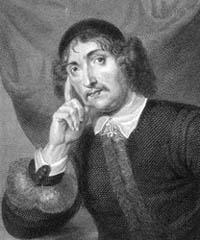
Export as CSV
John O. Thomson
1782 - 1818 Person Name: Thomson Hymnal Number: 105 Author of "Johavah God! thy gracious power" in Hymns for the Sanctuary Thomson, John, M.D., 1783-1818. A Leeds physician, who contributed to Aspland's Collection, 1310:—
1. To God, the universal King. To the One God.
2. Jehovah, God ! thy gracious power. Omnipresence of God.
3. To thee my heart, eternal King. Praise.
--John Julian, Dictionary of Hymnology (1907)
John O. Thomson
George Crabbe

1754 - 1832 Person Name: Crabbe Hymnal Number: 220 Author of "Pilgrim, burdened with thy sin" in Hymns for the Sanctuary Crabbe, George, LL.B., born at Aldborough, Suffolk, Dec. 24, 1754, and educated for the medical profession, but after practising for a short time, he turned his attention to literature, and subsequently took Holy Orders. He was successively Curate of Aldborough and of Stathern, and Incumbent of Evershot, Mirston and Trowbridge. Died at Trowbridge, Feb. 3, 1832. He received his degree from the Archbishop of Canterbury.
Although well known as a poet, his hymns are very few, and but little known. His works include The Village; The Parish Register, 1807; and others. From The Parish Register, his hymn, "Pilgrim, burdened with thy sin" (q.v.) is taken. Crabbe's collected Works were published, with a Memoir, by his son, in 1834.
--John Julian, Dictionary of Hymnology (1907)
George Crabbe
John Hawkesworth

1715 - 1773 Person Name: Hawkesworth Hymnal Number: 619 Author of "In sleep's serene oblivion laid" in Hymns for the Sanctuary Hawkesworth, John, LL.D. (b. 1715, and d. Nov. 1773), a writer in the Gentleman's Magazine, proprietor and editor of the Adventurer, and friend of Johnson, Warton, and other literary men of note, published, in 1760, Poems and Translations, and was the author of the well-known Morning hymn "In sleep's serene oblivion laid." This hymn was composed in 1773, "about a month before his death, in a wakeful hour of the night, and dictated to his wife on rising. It appeared in the Universal Theological Magazine for March, 1802." (Miller's Singers & Songs, &c, p. 210.) It was given in Collyer's Selection, 1812; the Leeds Hymn Book, 1853; and others; and is in somewhat extensive use in America. It sometimes begins, as in the American Unitarian Hymns for the Church of Christ, 1853, with stanza ii., "Newborn, I bless the waking hour."
-- John Julian, Dictionary of Hymnology
John Hawkesworth
Samuel Johnson

1709 - 1784 Person Name: Johnson Hymnal Number: 274 Author of "O thou, whose power o'er moving worlds presides!" in Hymns for the Sanctuary
Samuel Johnson
Erasmus Darwin

1732 - 1802 Person Name: Darwin Hymnal Number: 440 Author of "The Lord--how tender is his love!" in Hymns for the Sanctuary Darwin, Erasmus, M.D., 1732-1802. Physician and poet, of Lichfield, author of The Botanic Garden , 1781, &c. He was a friend of Dr. Priestley's, and in sympathy with many of his views, although not permanently connected with any church. His hymn on God, the disposer of events, “The Lord, how tender is his love," is in Kippis, Martineau’s Hymns for the Christian Church and Home & Martineau’s Hymns of Praise and Prayer gives another hymn on Immortal Nature, “Roll on, ye stars, exult in youthful prime."
--John Julian, Dictionary of Hymnology (1907)
Erasmus Darwin
James Shirley

1596 - 1666 Person Name: J. Shirley Hymnal Number: 505 Author of "The glories of our birth and state" in Hymns for the Sanctuary Shirley, James, b. 1596, d. 1666. His "Canst Thou, good Lord, forgive so soon?" (Passiontide) is in common use.
--John Julian, Dictionary of Hymnology, Appendix, Part II (1907)
=======================
Shirley, James, p. 1589, ii. In vol. vi. of Alexander Dyce's ed. of Shirley's Works (1833) there are two pieces which have passed into some modern hymn-books.
1. The glories of our blood and state. [Righteousness Immortal.] In 1833, p. 396, from Shirley's Contention Of Ajax and Ulysses, scene iii. In W. J. Fox's Hymns and Anthems, 1841, and others, it begins "The glories of our mortal state."
2. Canst Thou, dear God, forgive so soon. [Passiontide.] In 1833, p. 502, from a manuscript copy of Shirley's Verses and Poems, made about 1680, and now in the Bodleian (15417 = Rawl. Poet. 88). In the Anglican Hymn Book, 1S71, No. 357, it begins "Canst Thou, good Lord, forgive so soon." [Rev. James Mearns, M.A.]
--John Julian, Dictionary of Hymnology, New Supplement (1907)
James Shirley
John Scott
Person Name: J. Scott Hymnal Number: 459 Author of "All-seeing God, 'tis thine to know" in Hymns for the Sanctuary
John Scott
George Dyer
1755 - 1841 Person Name: Dyer Hymnal Number: 568 Author of "Great Framer of unnumbered worlds" in Hymns for the Sanctuary Dyer, George, B.A., 1755-1841. Educated at Christ's Hospital and Emmanuel College, Cambridge. The friend of Charles Lamb, of Priestley and Wakefield, and biographer of Robert Robinson of Cambridge. In 1792 he moved to London, to chambers in Clifford's Inn, Fleet Street, supporting himself by private tuition and literary work. He was a contributor to the Gentleman's and the Monthly Magazine, for which he wrote the introductory Ode in 1796. From 1809 to 1830 engaged upon Valpy's edition of the Classics, in 141 vols. Author of a History of the University and Colleges of Cambridge, 1814, and of several volumes of verse. Three of his hymns are in Kippis, and frequently in other books.
1. Greatest of beings, source of life. Hymn to the Deity.
2. Greatest of beings, source of life. The same continued.
3. Great Framer of unnumbered worlds. Hymn for a Fast
--John Julian, Dictionary of Hymnology (1907)
George Dyer
Mrs. Carter
Hymnal Number: 443 Author of "Through nature's ever varying scene" in Hymns for the Sanctuary
Mrs. Carter


 My Starred Hymns
My Starred Hymns


